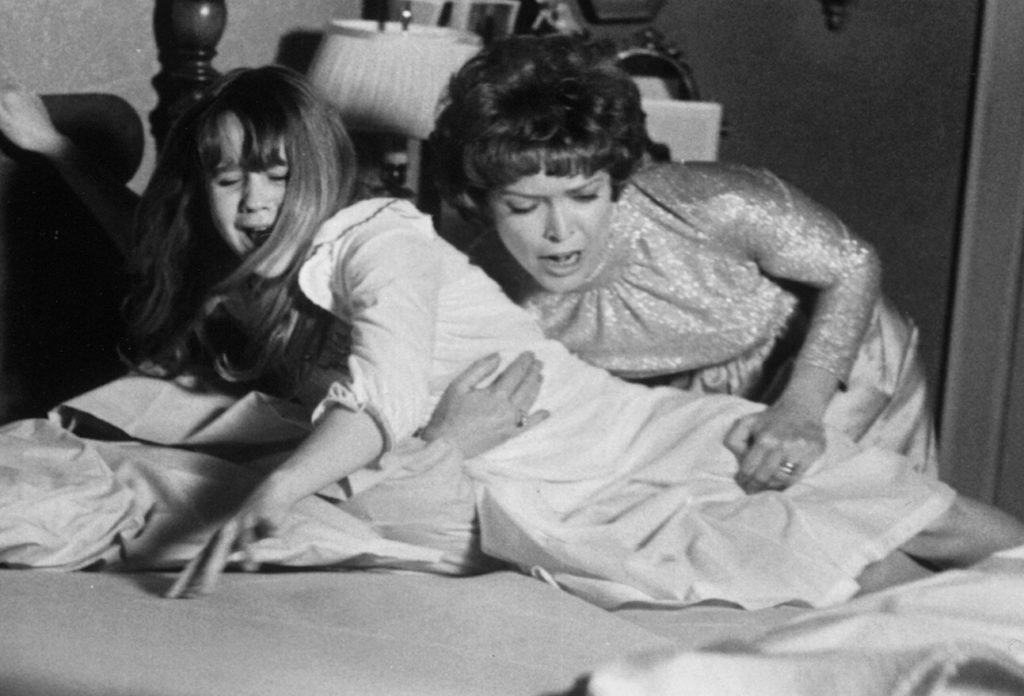How does the film stack up to the novel?

WIKIMEDIA COMMONS | PHOTO COURTESY
The 1971 novel, “The Exorcist” by William Peter Blatty and its 1973 film adaption directed by William Friedkin are widely acclaimed as both the scariest novel and film of all time respectively. Not only are they the “scariest” of their individual factions, they are among the best of their kind, period.
The book
If you go to this novel or film with the intention to be scared, you are going against what Blatty and Friedkin intended for you to experience. Despite the genuine horrors, the story is meant to evoke ideas of the spiritual powers of evil and good within the world as well as beg the question: “Do you believe in the devil?”
“The Exorcist” was once hailed as the scariest novel since Bram Stoker’s “Dracula” (I’m sorry but comparing “Dracula” to “The Exorcist” in terms of horror is like comparing root beer to bourbon).
Based loosely upon an allegedly true event of the possession of a boy, the plot tells of Regan, the daughter of actress Chris Macneill, who becomes possessed by a demon while playing with a Ouija board. The daughter’s possession turns the lives of those around her upside down by murdering her mother’s boss, desecrating a cathedral, spewing all levels of profanity and violating herself with a crucifix moments before assaulting her mother.
At her wits end, Chris seeks help from Jesuit priest Father Damien Karras who is struggling with his faith upon the death of his mother. Their only hope can be found in the exorcist, Father Merrin, who has battled the demon once before. However, nobody is ready for the true showdown that will take place.
The story is not all doom and gloom as there are many light moments with the fun-loving but bumbling detective Kinderman who befriends both Chris and Karras in his investigation. The horror begins halfway through the story and then never stops.
To label this book a masterpiece would be an understatement. It was not meant by its author to be a pulpy horror story but an apostolic tale of the battle between good and evil, and if you are open to its message, you might find it.
The film
An agnostic with a strong respect towards the source material, Friedkin directed this film flawlessly, evoking care and intensity through every scene. Even the non-frightening scenes were like watching an extensively long fuse burning, knowing the stick of dynamite was hiding somewhere only to be revealed upon explosion.
Written and produced by Blatty, this film is extremely close to the novel—with the scenes of true horror toned down for the viewing audience (if you can believe it possible). It later received a director’s cut which added deleted themes of spiritual consideration present in the book without being overbearing.
The amount of care placed into this film is staggering as every performance evokes sympathy, especially actor Jason Miller’s performance as the conflicted Karras who fights to remain skeptical of the possession until he finds he cannot ignore the genuine evil any longer.
My only complaint is the lack of the demon’s terrifying and darkly wry musings prevalent in the book; “So few miracles in the world…don’t blame us (demons), we try.” I can forgive it however for the infamous scene where the priests shout “The power of Christ compels you” 14 times when the demon levitates (not in the book).
I was not terrified while watching this; I was haunted by its themes afterwards upon reflection. This is true horror, making one think and dread evil’s subtlety. This serious goal of commuting a message over making money is why this film has aged like rich wine whereas “The Conjuring” universe will age like vinegar.
This film could not be made today, it is too good. And on that note, I speak for many when I say there must never be a remake of this masterpiece, especially not one starring Brie Larson as Chris, Tom Hiddleston as Karras, and Samuel L. Jackson as Merrin, directed by JJ Abrams. That would be true horror and evil of the worst kind.
The victor
If I were forced to choose one over the other, I would choose the director’s cut of the film. Not because it is superior to the book (which it is not), but due to its condensing of the heavy novel while exploring its darker themes of true evil and ultimate redemption.
